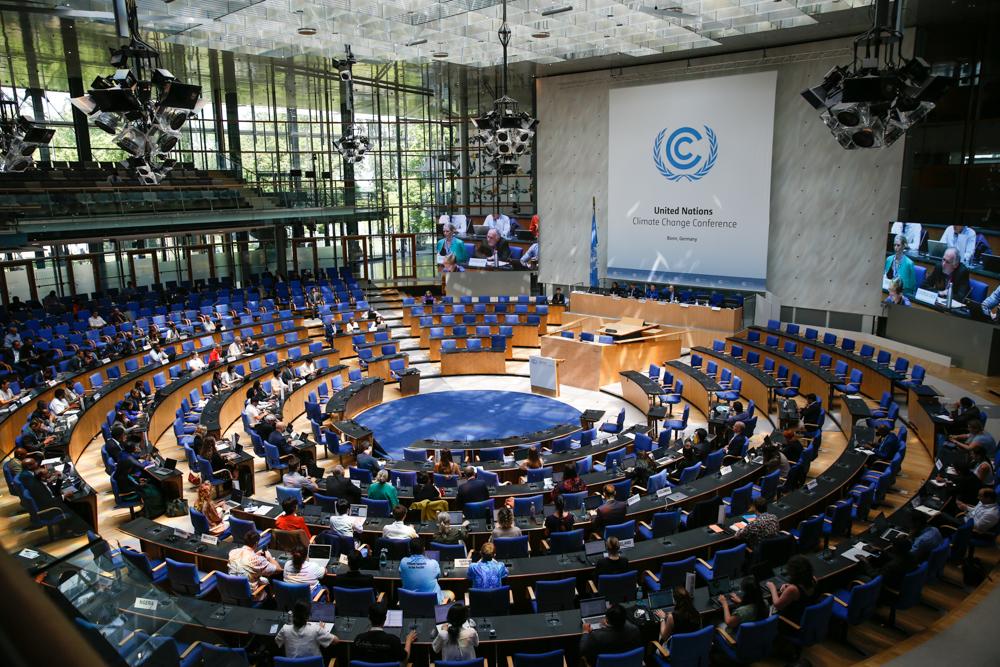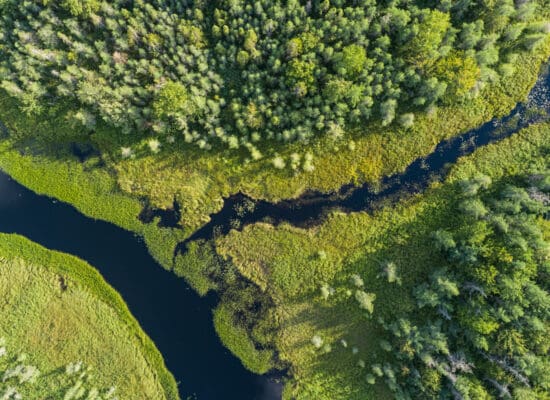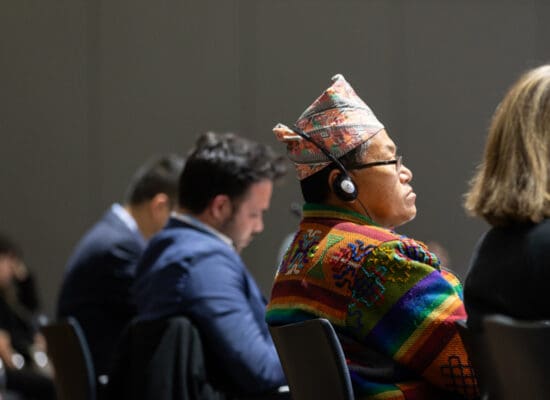
What is the Just Transition Work Programme?
The Just Transition Work Programme (JTWP) is an initiative of the United Nations Framework Convention on Climate Change (UNFCCC) that aims to promote pathways that ensure that the goals of the Paris Agreement are achieved justly and equitably. These pathways should be multi-faceted (including energy, socio-economic, workforce, and other dimensions), must include social protection, and must be specific to country contexts by considering nationally defined development priorities.
The JTWP was established in 2022 as a part of the COP 27 cover decision outlined in the Sharm el Sheikh Implementation Plan. The Subsidiary Body for Scientific and Technological Advice (SBSTA) and the Subsidiary Body for Implementation (SBI) then created a draft decision to be considered at COP 28, where the programme’s objectives were defined and adopted on 13 December 2023.
Has anything like this been done before?
The JTWP is not the first initiative of its kind that has been set up under the UNFCCC. Other thematic programmes and dialogues have been convened, usually running for various years, including on Action for Climate Empowerment, mitigation ambition and implementation, the impacts of response measures, transparency arrangements, and children and youth in climate action. However, none have revolved around just transition alone. The programme’s recognition of labour rights, social protection, and social dialogue has notably been celebrated by workers, who had been leading the just transition conversation thus far. There is also emphasis on the importance of inclusive and participatory approaches that leave no one behind for just transition, and on international cooperation as an enabler of such pathways. The International Labour Organization (ILO) has described the JTWP as “a historic new work programme on just transition,” emphasising both the significance and uniqueness of the programme.
How does the JTWP work in practice?
A key element of the work programme is knowledge exchange via multilateral collaboration, with biannual round table dialogues as its primary modality. The first of these dialogues took place in June 2024—in a hybrid format to allow both in-person and virtual participation—immediately before the 60th sessions of the SBSTA and the SBI, the two permanent subsidiary bodies of the UNFCCC. A second dialogue, hosted by the government of Egypt, was held in October 2024, as a precursor to COP 29. The third dialogue is scheduled for May 2025 in Panama, on the sidelines of the UNFCCC Climate Week. Negotiations, which take place at COP, constitute the formal process during which parties define and agree on the elements and implementation of the JTWP. The purpose of these negotiations is to further shape the direction of the work programme, including potentially translating the outcomes of the dialogues into concrete actions. In addition to the dialogues and negotiations, a high-level Annual Ministerial Round Table on Just Transition was launched at COP 28, providing a platform for parties to exchange perspectives, insights, and strategies on advancing the goals of the Paris Agreement, as outlined in Article 2.1 (temperature goals, adaptation capacity etc.), in alignment with the principles of equity and national context described in Article 2.2 (“common but differentiated responsibility”). A second dialogue was subsequently held at COP 29.
Who participates in the JTWP, and what are the logistical processes?
The JTWP is implemented under the guidance of the SBI and SBSTA, with support from the UN Climate Change Secretariat. As is the case for all formal negotiations under the UNFCCC, only the parties —the 198 countries that have ratified the UNFCCC convention—can take decisions under the JTWP, while non-party stakeholders, notably non-governmental organisations (NGOs), may only observe the negotiations.
In contrast, at the biannual dialogues organised under the JTWP, observers and parties can participate equally, allowing them to both engage in discussions and shape the discourse. To guide these discussions, all parties, observers, and other non-party stakeholders are invited to submit their views on work to be undertaken as part of the programme, as well as possible topics for the dialogues, before mid-February each year.
What is discussed at the dialogues?
Two concrete follow-ups are designed to track the progress made by this initiative: first, the UN Climate Change Secretariat has the mandate to prepare a report summarising information on the activities under the JTWP with a view to that report informing the second global stock take, including its technical dialogue; second, the chairs of the subsidiary bodies are required to prepare an annual summary report on the dialogues (the report for 2024 can be found here).
During the first dialogue of the JTWP, discussions focused on incorporating a just transition into nationally determined contributions (NCDs), national adaptation plans (NAPs), and long-term low emission development strategies (LT-LEDS). The discussion emphasised the importance of a systematic approach, which includes socio-economic assessments and active participation from a wide range of stakeholders. Parties also stressed the importance of a whole-of-society approach, which must incorporate local knowledge and social protection measures to ensure that vulnerable groups are protected. International cooperation was highlighted as a critical factor for implementing climate policies, especially in developing countries. Financial support, opportunities for shared learning, and technology transfer were also identified as key components.
At the second dialogue, participants discussed how to ensure support for people-centric and equitable just transition pathways, with a strong focus on the whole-of-society approach and the workforce. Key topics included empowering all segments of society—especially workers, women, young people, Indigenous Peoples, and local communities—through inclusive stakeholder engagement and institutionalised social dialogue. The dialogue explored the means of implementation needed for just transitions and identified existing gaps and barriers. In addition, parties discussed the critical role of international financial support in achieving just transitions in developing countries.
The third dialogue, which will take place in Panama City from 22 May to 23 May 2025, will discuss “approaches to enhancing adaptation and climate resilience in the context of just transitions.”
Which challenges is the JTWP facing in its implementation?
At the 60th sessions of the UNFCCC Subsidiary Bodies (SBs) in Bonn in June 2024, challenges emerged regarding the concrete outcome of the JTWP. A proposal from the G77 group of developing countries advocated for a detailed work plan but was opposed by developed countries, including Australia, Canada, and the United States, which argued that it was too early for such a plan and that further consensus-building was necessary before specific implementation measures could be laid out. Disagreements also arose over the timing and format of future dialogues, including the selection of topics.
COP 29 in Baku (11–22 November 2024) also ended without a formal decision on the JTWP because parties could not reach consensus on a final draft text. While developed countries viewed the draft as a compromise that incorporated key priorities such as adaptation, international partnerships, and Common but Differentiated Responsibilities and Respective Capabilities (CBDR-RC), some developing countries felt that the overall text was imbalanced and still lacked key elements. There were also significant disagreements over the scope of the JTWP and over the inclusion of specific references that might shift the dynamics of the programme. In addition, concerns were raised about the absence of guidance for just transition pathways, as well as the lack of economic equity and strong financial commitments from developed countries to developing ones. As a result, no consensus was reached. However, despite the lack of final agreement, progress was made in numerous areas, including references to broader stakeholder inclusion and a focus that extends beyond the existing workforce.
The root of the challenges lies in the fundamentally different understandings of what a “just transition” means for developed and developing countries. Developed countries tend to focus on domestic efforts, therefore promoting practices relating to transitioning the jobs market, while developing countries advocate for a transition that is deeply rooted in the principle of CBDR-RC. They push for a much broader transition, which emphasises a fair and equitable pathway without sacrificing development goals. This divide between the parties has so far left many issues unresolved and prevented agreement on a clear roadmap for implementing the JTWP.
What are the next steps under the JTWP?
The unresolved negotiations are set to carry over to the SB sessions in June 2025. The negotiations are expected to prioritise concrete next steps for the JTWP, with hopes that a meaningful outcome that renders the JTWP implementable will be achieved by COP 30. As part of the call for submissions issued in early 2025, parties and observer organisations were invited to share their views on work to be undertaken under the JTWP and propose topics for upcoming dialogues. These submissions—authored by many countries and organisations—reveal areas of alignment and discord.
For example, the G77 and China, along with the Grupo SUR countries (Brazil, Ecuador, Paraguay, and Uruguay), emphasise that just transitions must be grounded in equity and the principle of CBDR-RC, and that they must enable sustainable development and the eradication of poverty. They reiterate that the provision of adequate means of implementation—finance, technology transfer, and capacity building—is a prerequisite for effective and equitable transitions. They strongly criticised the outcomes of COP 29, noting that finance mobilised by developed countries fell short of their obligations under Article 9.1 of the Paris Agreement. Moreover, the European Union, disappointed by the lack of decision at COP 29, has called for more focused and operational outcomes. It proposes sector-specific deep dives (starting with energy and agriculture/land use), greater integration of social protection, and a rights-based, gender-transformative approach to just transition policy design. The Environmental Integrity Group (EIG), on the other hand, echoes the need for tangible deliverables, such as a policy toolbox, socio-economic impact methodologies, and the stronger integration of business and civil society perspectives.
Civil society submissions call for a more inclusive JTWP process, including joint party-observer advisory mechanisms. They urge broadening the scope beyond workforce issues to address food systems, decent work, and the social impacts of climate solutions, while ensuring the participation of marginalised groups. Others emphasise the need to operationalise the JTWP through governance frameworks, justice-based indicators, knowledge-sharing platforms, and greater coherence across UNFCCC workstreams, with calls for dialogue on adaptation, restorative justice, and critical minerals.
Finally, the continuation of the programme beyond November 2026 is still undecided. As per the decision taken at COP 28, the programme’s efficacy is to be assessed at COP 31. On the basis of this assessment, the parties to the Paris Agreement will then decide whether to extend its duration.
Cece Coleman is a third-year Biochemistry student at Smith College, a private liberal arts women’s college in the U.S., and an intern at the International Institute for Sustainable Development working with the Just Energy Transition in Coal Regions Knowledge Hub.
Stay Informed and Engaged
Subscribe to the Just Energy Transition in Coal Regions Knowledge Hub Newsletter
Receive updates on just energy transition news, insights, knowledge, and events directly in your inbox.


